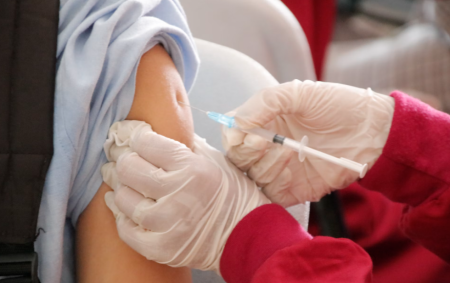Scientists Are Developing a Cocaine Addiction Treatment

© Ed Us / Unsplash
The world is finally moving forward, and science is helping it do that! In recent news, scientists are trying to develop a cocaine addiction treatment. The test results have been positive when tested on animals, and all that is left to do is to find out whether the same treatment will have a positive effect on humans as well. The establishment of the treatment would mark a significant step forward towards cocaine addiction.
Calixcoca – The Cocaine Addiction Treatment
Researchers in Brazil, a major consumer of cocaine, are developing a vaccine called ‘Calixcoca’ to combat addiction to both cocaine and its potent derivative, crack. The vaccine functions by stimulating an immune response that hinders the entry of cocaine and crack into the brain. This would effectively block the psychoactive effects of the drugs. This study aims to disrupt the addiction cycle by preventing users from experiencing the pleasurable sensations associated with drug use.
Promising results have been observed in animal trials. This has prompted the vaccine to progress to the next stage of testing, human trials. If successful, Calixcoca could represent a significant breakthrough in addiction treatment. It would offer a novel approach to addressing substance abuse in a country where cocaine consumption is prevalent. The development of such a vaccine holds potential not only for Brazil but also for global efforts to tackle drug addiction.
The Study Around Cocaine Addiction Treatment
Recently, successful animal studies have been conducted on vaccines designed to prevent overdoses from fentanyl and heroin. These vaccines, intended for high-risk drug users, are set to enter human trials next year. The positive outcomes from these studies indicate that vaccines might offer a unique and effective approach to addressing America’s overdose problem. This provides hope for a new strategy in combating substance abuse.
How Does the Treatment Work?
When cocaine is snorted, it is absorbed into the bloodstream through nasal tissues. Some individuals may also rub the drug on their gums or inject it after dissolving it in water. This leads to a faster and more intense impact on the bloodstream. The vaccine functions by triggering the immune system to produce antibodies that bind to cocaine molecules in the blood. This immune response renders the molecules too large to enter the brain’s mesolimbic pathway. This is commonly referred to as the ‘reward center.‘

This is where cocaine typically stimulates the release of dopamine, a pleasure-inducing hormone. By preventing the entry of these molecules into the brain, the vaccine aims to thwart the usual sensation of euphoria associated with cocaine use. This would offer a potential intervention for addiction.
What Is the Goal of the Treatment?
The vaccine is set to advance to human trials, with over 3,000 individuals expressing interest in volunteering for these clinical trials. Recently, it received the top prize, a half-million-dollar award, at the Euro Health Innovation Awards for Latin American medicine. Dr. Garcia, leading the development team, emphasized that there is currently no registered treatment for cocaine and crack addiction, leaving addicts with limited options such as a combination of psychological counseling, social assistance, and rehabilitation. The vaccine represents a potential breakthrough in addressing addiction where conventional treatments are lacking.
What Is Yet to Be Found Out
The ‘Calixcoca’ vaccine, developed in Brazil, aims to prevent cocaine addiction by blocking the pleasurable effects of the drug, rather than reversing overdoses. It is designed to deter addicts from using cocaine due to the absence of the typical euphoric high. The method of administration, whether as a single shot or through a series of injections, remains unclear. If the vaccine receives regulatory approval, it would mark the first instance of treating cocaine addiction with a vaccine.
Although similar attempts were made in the United States, they were discontinued due to insufficiently robust results in clinical trials, according to psychiatrist Frederico Garcia, the leader of the team behind the treatment at the Federal University of Minas Gerais in Brazil.
Last Thing to Consider
The Calixcoca vaccine is designed to support individuals in critical stages of recovery, particularly upon leaving rehabilitation. Researchers discovered that it also offers protection to rat fetuses exposed to cocaine, suggesting its potential use for pregnant addicts to safeguard their unborn babies. Notably, the vaccine is composed of synthetic chemical compounds created in a laboratory, distinguishing it from many other vaccines, such as some for cancer, which use biological ingredients.

This characteristic makes it cost-effective and eliminates the need for storage at low temperatures. Dr. Garcia emphasized that if approved, the vaccine would be targeted specifically at recovering addicts who have successfully ceased cocaine use and are committed to staying drug-free.
Crack and cocaine, both highly addictive substances, pose significant challenges in terms of addiction. In the United States, one in four regular cocaine users becomes addicted, with only one in four addicts successfully quitting after five years of treatment. By 2021, the number of deaths had sharply escalated to 24,486. So this vaccine is long overdue.
You might also want to read: Florida Cocaine Sharks Are Now a Thing


